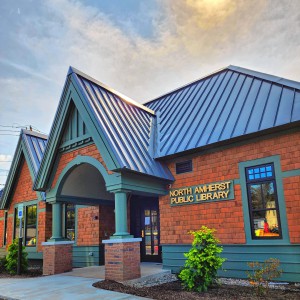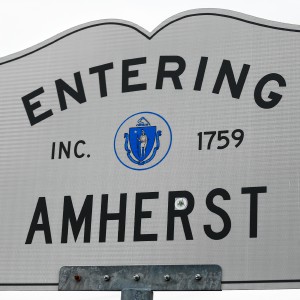Amherst regional schools losing 14 positions
| Published: 04-21-2023 1:00 PM |
AMHERST — An operating budget that will cause the elimination of more than 14 positions at the Amherst-Pelham Regional public schools is being recommended by the Amherst Finance Committee, even with worry from some town officials that revenues are being lost due to the manner in which the four member towns make their annual payments.
The committee voted 4-0 this week to endorse the $33.7 million budget for the schools that is 2.19%, or $722,176, higher than this year’s $32.98 million budget, but falls $1.16 million short of the $34.86 million necessary to sustain existing services.
Even with use of about $1 million in federal Elementary and Secondary School Emergency Relief Fund money, the regional schools will lose five paraeductaors, two teachers and two student support educators as part of 14.44 full-time equivalents being cut.
“There are fewer people working for us than there now as a result of this,” Douglas Slaughter, the school’s finance chief, told the Finance Committee on Tuesday. “It’s not level services.”
The Town Council is expected to vote on both the budget assessment, which for Amherst is rising by $517,214, or 3%, from $17.25 million to $17.77 million, and the assessment method that includes so-called guardrails that prevent any of the other member towns — Shutesbury, Pelham and Leverett — from seeing what they pay year over year rise by more than 4%.
Both Leverett, which holds its annual Town Meeting on April 29, and Pelham, which follows with its Town Meeting in May, are already at the 4% increase, while Shutesbury, with a Town Meeting in June, is below that increase.
The guardrails have come under question in Amherst, which upped its annual increase from 2.5% to 3%. This triggered a higher contribution from Shutesbury, too, with its assessment going up by an additional $9,000, to a $13,781 increase, or 0.89%, from $1.55 million to $1.56 million.
But with Pelham and Leverett already at their caps due to the guardrails, the regional schools will be leaving $50,396 on the table. Pelham is limited to a $38,668 increase, from $969,706 to $1.01 million, instead of providing $69,108 more otherwise, and Leverett is limited to a $59,269 increase, from $1.48 million to $1.54 million, instead of providing $79,725 more otherwise.
Article continues after...
Yesterday's Most Read Articles
 Northampton bans auto dealerships near downtown; zone change won’t affect Volvo operation on King Street
Northampton bans auto dealerships near downtown; zone change won’t affect Volvo operation on King Street
 Proposed Hatfield pickleball/tennis building raising eyebrows
Proposed Hatfield pickleball/tennis building raising eyebrows
 South Hadley man killed in I-91 crash
South Hadley man killed in I-91 crash
 ‘Home away from home’: North Amherst Library officially dedicated, as anonymous donor of $1.7M revealed
‘Home away from home’: North Amherst Library officially dedicated, as anonymous donor of $1.7M revealed
 Police respond to alcohol-fueled incidents in Amherst
Police respond to alcohol-fueled incidents in Amherst
 Public gets a look at progress on Northampton Resilience Hub
Public gets a look at progress on Northampton Resilience Hub
The assessment method must be adopted unanimously by the towns and signed off by the state’s education commissioner.
At a recent Town Council meeting, At Large Councilor Mandi Jo Hanneke said the guardrail system means the regional schools are willingly giving up more than $50,000 in revenue for the budget, noting that Amherst previously contributed excess state aid revenue in the state’s supplemental budget last year as a gift to the region.
Hanneke said this extra support needs to be communicated to town officials and Town Meetings in the smaller towns. “In some sense, we are paying more than our fair share,” Hanneke said.
But Superintendent Michael Morris told the Town Council that, while he appreciates Amherst stepping up, he has been clear with all four towns of the implications of the guardrails, though they are preferable to the risk of having larger assessments fail at Town Meetings.
“For me, the guardrails are a way to get budgets passed that support our system,” Morris said. “If there weren’t guardrails, and some of the increases in the small towns, we’d be having a different conversation, I imagine, with a lot more uncertainty in the budget and potentially with a lot more cuts to the budget.”
The budget strategically reduces positions through consultations with principals and staff and administrators to be least impactful on education, Slaughter said. “The pressure on the budget will be there in subsequent years,” Slaughter said.
Declining enrollment and ongoing financial pressures are real, Morris said. “The reality is our costs are going up greater than our revenues,” Morris said.
Morris added that the Student Opportunity Act is not benefiting the district, and neither is the Fair Share Amendment, or so-called millionaires’ tax.
District 3 Councilor Dorothy Pam wondered if there was potential for restoring positions.
Morris said that is not likely to happen. “This budget is built on a million dollars of one-time ESSER funds, so it’s not balanced,” Morris said.
Scott Merzbach can be reached at smerzbach@gazettenet.com.
 State Senate budget funds free community college for all
State Senate budget funds free community college for all ‘We can just be who we are’: Thousands show support for LGBTQ community at Hampshire Pride
‘We can just be who we are’: Thousands show support for LGBTQ community at Hampshire Pride Doors open at Tilton Library’s temporary home at South Deerfield Congregational Church
Doors open at Tilton Library’s temporary home at South Deerfield Congregational Church Area property deed transfers, May 2
Area property deed transfers, May 2
